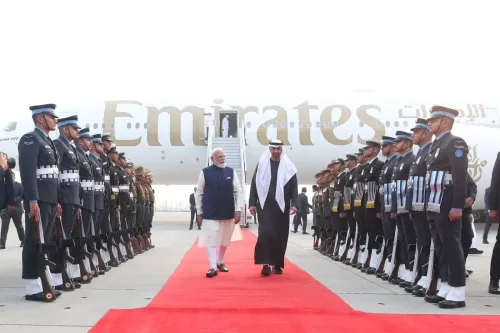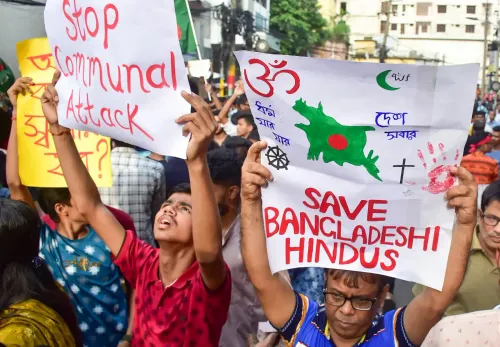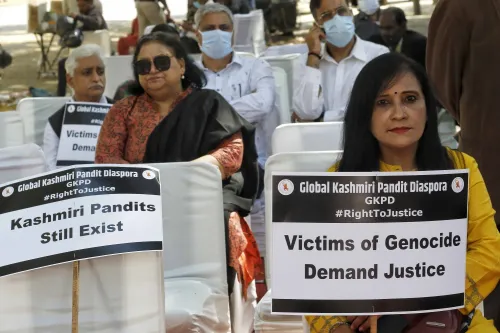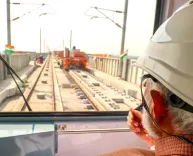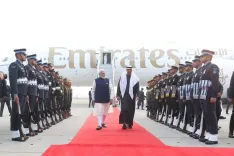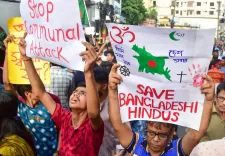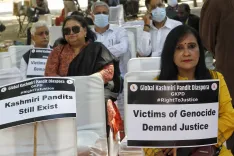Paramilitary RSF Blames Sudanese Army for Fatal Airstrikes in North Darfur
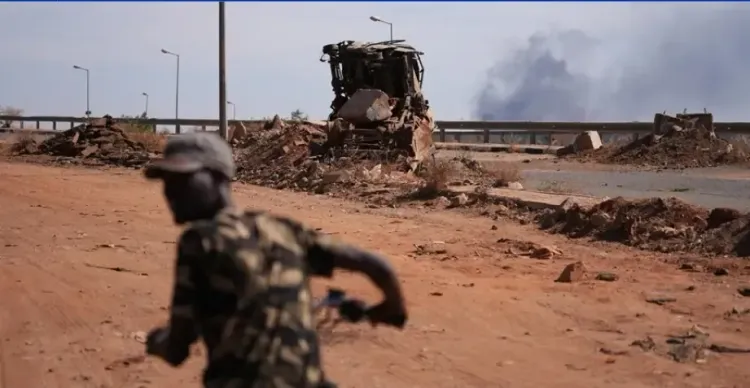
Synopsis
Key Takeaways
- RSF claims SAF airstrikes led to civilian deaths.
- UN expresses deep concern over civilian safety.
- SAF releases map showing control areas amid ongoing conflict.
- Military operations ramping up in Khartoum.
- Conflict has severely impacted Sudan's population and healthcare.
Khartoum, March 26 (NationPress) The paramilitary Rapid Support Forces (RSF) have charged the Sudanese Armed Forces (SAF) with conducting airstrikes on the Tora marketplace in North Darfur State, resulting in a tragic loss of life. Reports indicate that over 100 individuals lost their lives, with many more injured due to intense bombardment on Tora, situated north of El Fasher, the capital of North Darfur. The Sudanese army has yet to respond to these allegations, according to reports from the Xinhua news agency citing the independent news outlet Sudan Tribune.
UN spokesperson Stephane Dujarric expressed that the UN is “deeply concerned about the ongoing assaults on civilians,” referencing the airstrike on Monday and an RSF artillery strike on a mosque in Khartoum on Sunday.
In a separate development, the SAF has publicly released a map for the first time delineating its zones of control alongside RSF-held regions, as clashes between the two factions persist.
In a statement on its official Facebook page, the SAF proclaimed, “The Sudanese Armed Forces and other regular units, backed by the Sudanese populace, are actively engaged in operations to dismantle militias, striving to conclude the rebellion and restore peace and order.”
The map displayed areas marked in green indicating complete SAF control, which includes Northern, River Nile, Red Sea, Kassala, Gedaref, Blue Nile, Gezira, and Sinnar states. Conversely, RSF-controlled regions, such as West, South, and East Darfur, were highlighted in red.
Since the onset of 2024, the army has achieved territorial advancements, notably in Omdurman, north of Khartoum, reclaiming the Greater Omdurman area and altering the power dynamics in its favor. The military ramped up operations in the capital in late September through a ground offensive supported by airstrikes, reclaiming segments of central Khartoum and western Bahri.
By early October, the army had regained control of most urban centers in Sinnar State. On January 11, it captured Wad Madani, the capital of Gezira State in central Sudan, although several smaller towns remain under RSF influence.
The conflict, approaching the two-year milestone, has resulted in tens of thousands of fatalities, displaced over 15 million people, and instigated one of the most severe hunger and displacement crises globally. With the health infrastructure in Sudan collapsing, verifying casualty statistics remains a challenge.



